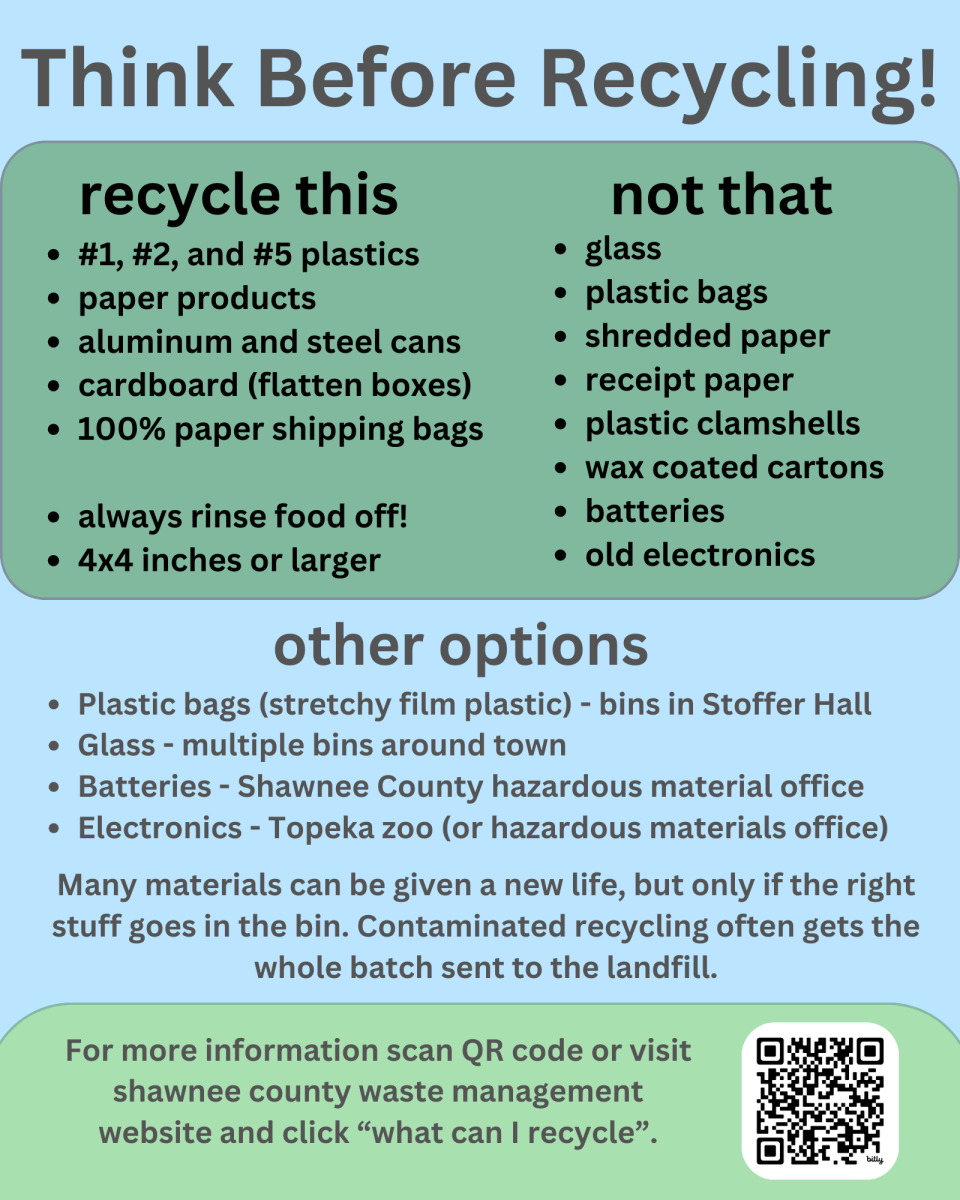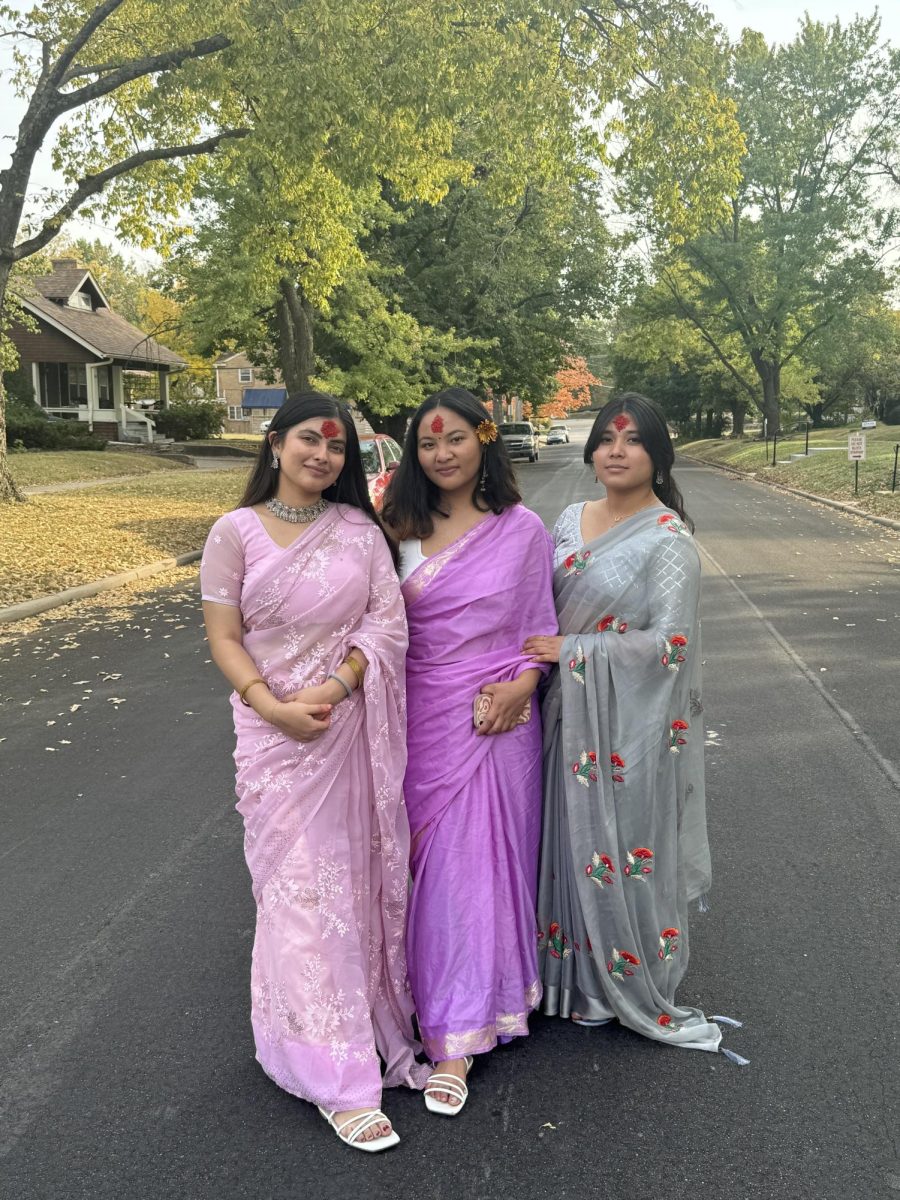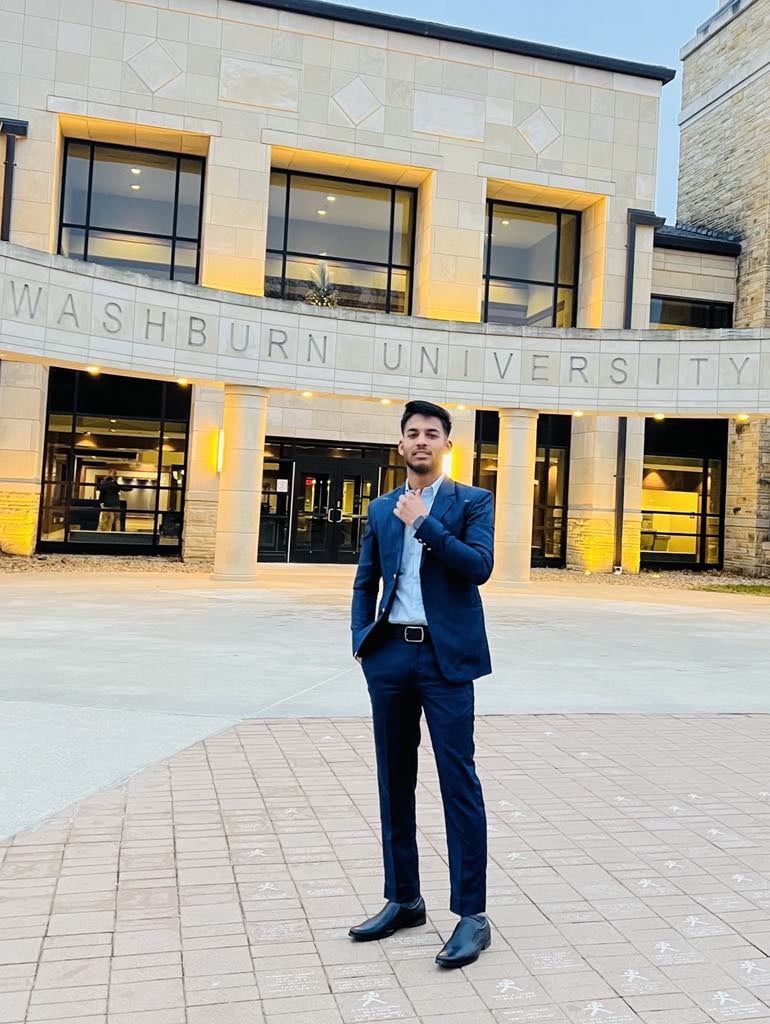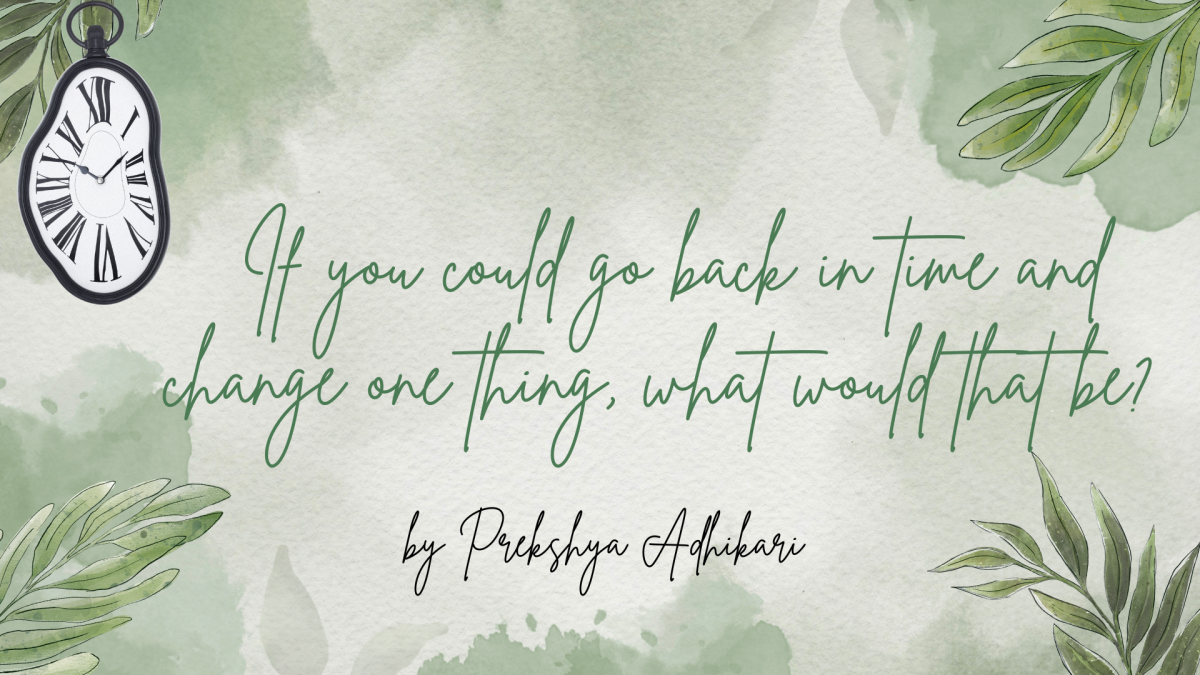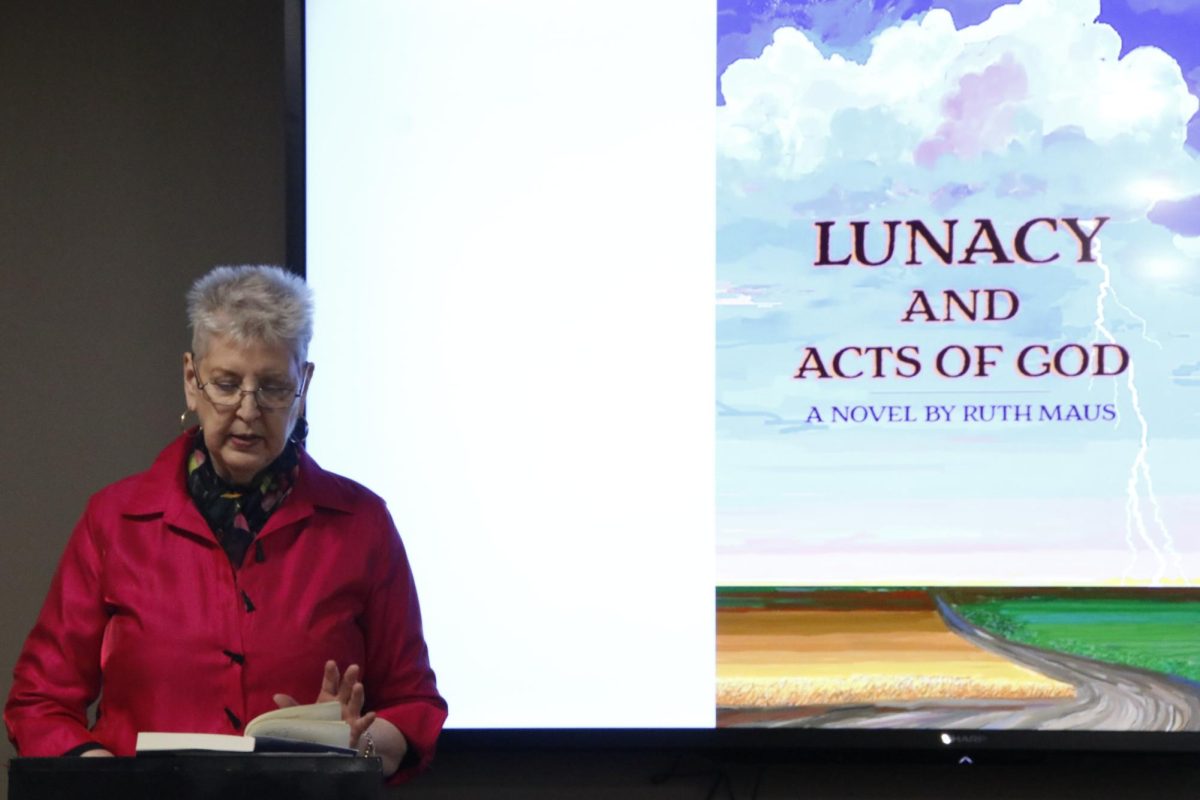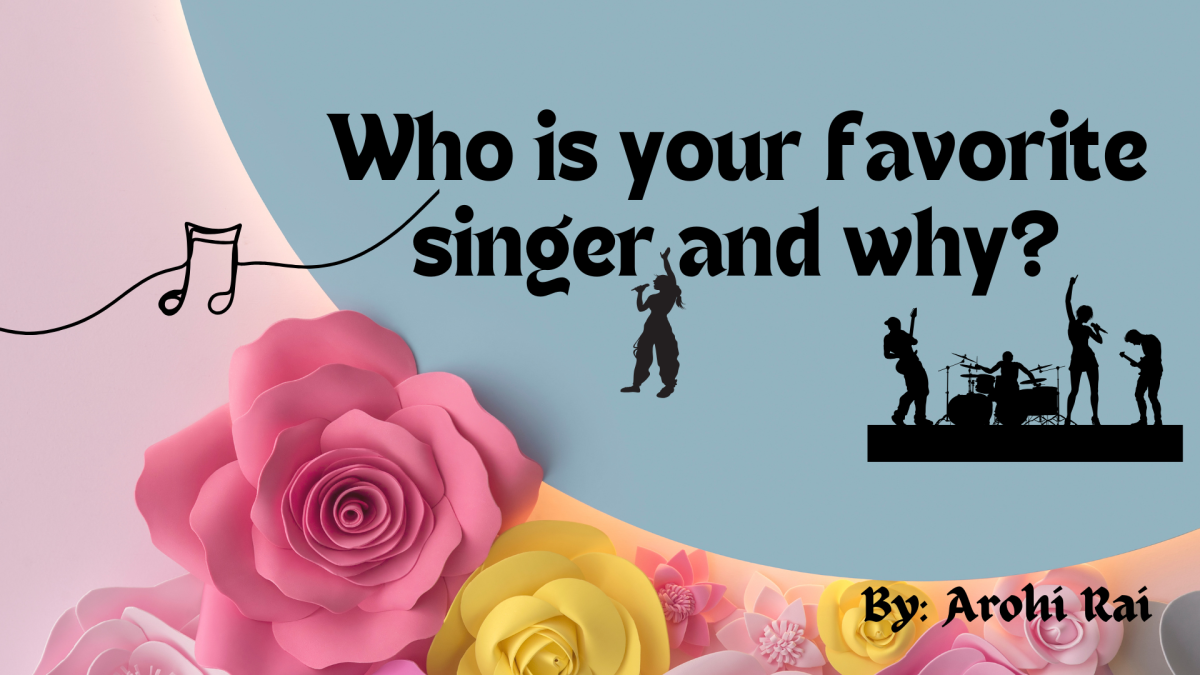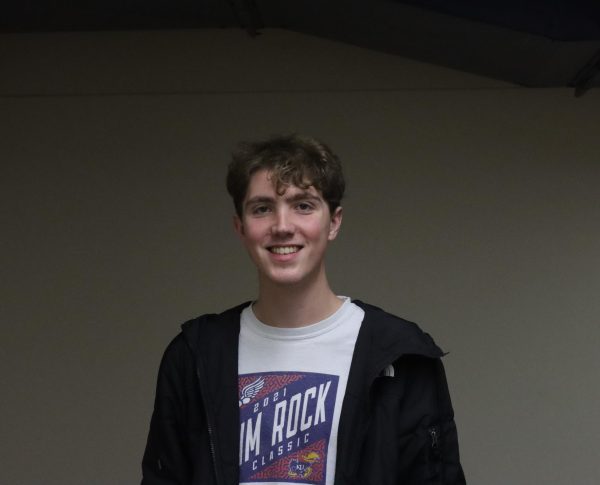As an environmental biology major, freshman Madeline Holter understands the risks our ecosystems face in a wasteful world. Thus, for her first-year project as an honors student at Washburn, she decided to begin educating others with posters.
“I’ve always been told how to recycle because I’ve been in clubs, and so I’ve just known the rules. I see people not following the rules … but they don’t know,” Holter said.
Holter plans on hanging the posters throughout campus. Holter’s involvement in sustainability-based clubs such as the Eco Bods shows another level of determination to educate others.
The Eco Bods is a club focused on educating others at Washburn about the environment and pushing Washburn towards sustainable practices. Kaylyn Hobelmanm, lab supervisor for the Washburn Biology Department, mentioned that Eco Bods have recently pushed for an on-campus baler, in which Washburn can bale their plastic waste and sell it.
Holter’s drive for initiating the project is supplemented by professor Judy Scherff, who teaches biology at Washburn.
“We’re on the endangered species list. We’re waiting behind the curtains because once we get rid of too many plants and animals, we’re really going to be next,” Scherff said.
Scherff mentioned a constant imperative towards “grabbing everything you can” and profits destroy ecosystems on a routine basis. Everything was once a part of the earth, yet we use up what natural resources can produce in a year only within eight months. She also mentioned machines similar to the famous Big Brutus mining machine in West Mineral, Kansas are going into the ocean to dig up its 4.5-billion-year-old surface, destroying environments nature has relied on since the beginning of life on Earth. Sustainability and respecting the earth means survival for numerous species — including us.
“People know about recycling. Most of them don’t have an interest in doing anything about it. It might be a lot of people are lazy. Let’s face it, they don’t want to walk 20 feet to throw a can in a recycling container,” Scherff said.
However, she has hope that projects, similar to the one Holter is conducting, will help others become knowledgeable of their environmental footprint, and will help to spark some amount of change around campus.
“We’re kind of in a society of overuse and over-waste. The thing with recycling is that it kind of mimics nature in that you have waste, or you have things that die, and then those things are used to grow new things. And so, what we’ve done with our resources is we’ve taken them and turned them into single-use products that we just throw away. But if we can use those products to remake things, it’s kind of mimicking the way that nature does, where something meets its end and then you use it to make a new thing,” Holter said.
Edited by Morgan Albrecht and Alijah McCracken.





